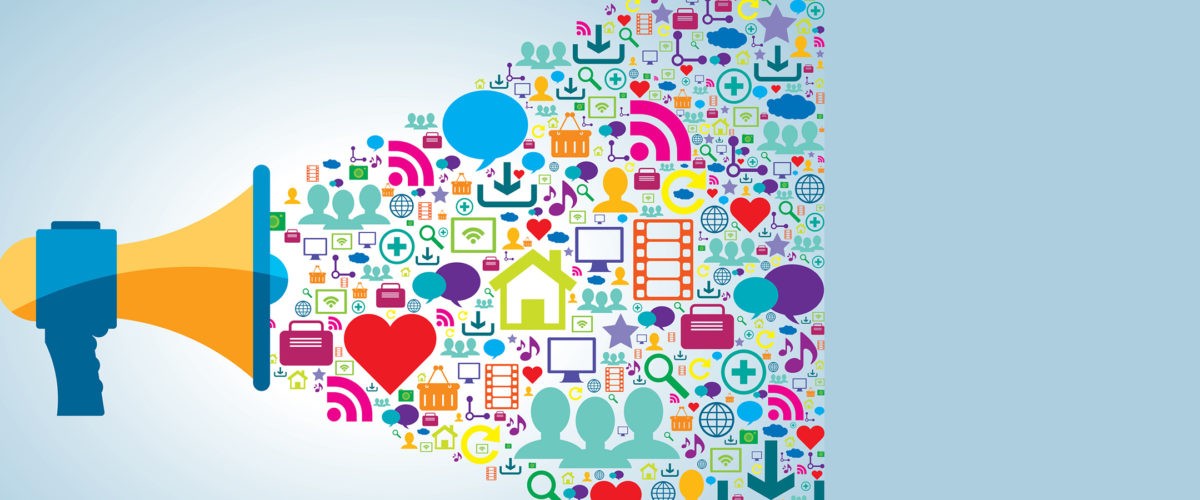“If you are the praying type” many tweets I come across often begin, “my son just died and I don’t think I can go on,” or “my husband, who is also a father of three, has incurable cancer,” or “I just lost my job after reporting my boss for sexual assault.”
If you’re on Twitter it shouldn’t take you long to come across something similar.
One tragic tweet I saw had been “favorited” 789 times, retweeted more than 500 times, and responded to 83 times. And, frankly, I’m still not sure what any of those “interactions” really mean. Whenever acute devastation befalls us, why is one of our first moves to immediately tweet and Facebook about it to strangers? Connection, I guess?

Eric Minton
But, at the bottom, I’m wondering how any of us have become able to live comfortably in a world where our pain and quiet tragedy appear alongside real estate listings, targeted ads, memes and the news in order to, and this is the confusing part, entertain other people. Maybe the word “entertain” isn’t quite right here, but I think “interrupt their boredom” seems to suffice.
Our tragedies, just like photos from our kid’s seventh birthday party, our views on the U.S.’s flagging vaccination rates, and our vacation to Disney World, become yet more “content” almost all of us here on earth, at least statistically, spend roughly two hours of every day scrolling through.
During this, our on-again-off-again pandemic, even more of human life became “content,” like church and book clubs and insurrection. We buy pants and plants online, we digitally rummage through our friend’s new house on Zillow, we unexpectedly perish attempting to take cool selfies in dangerous places, we listen to podcasts and donate to Patreon accounts where famous people on the internet pretend to be our friends, and the man who sells us all these pants and plants just went to space for 11 minutes dressed as a cowboy.
Life is incredibly bizarre right now, and yet us humans? Totally, predictably, depressingly uncomplicated.
“Life is incredibly bizarre right now, and yet us humans? Totally, predictably, depressingly uncomplicated.”
Historian Yuval Noah Harari grimly spells out what he sees as the long-term effects of the rampant digitizing of our souls and selfhood: “Currently, humans risk becoming similar to domesticated animals. We have bred docile cows that produce enormous amounts of milk but are otherwise far inferior to their wild ancestors. They are less agile, less curious, and less resourceful. We are now creating tame humans who produce enormous amounts of data and function as efficient chips in a huge data-processing mechanism, but they hardly maximize their human potential.”
If there’s anything our world needs right now it’s humans operating at full potential, rather than humans vacantly scrolling Twitter in heavy traffic or updating Facebook during the apocalypse in order to increase the reach of their personal brands.
Despite a great deal of ink spilt on the increasingly “confusing” nature of human relationships and identity in the modern world, one of the worst components of the digital domestication Harari describes is the way it has thoroughly simplified our discourse, democracy and even the ways we choose to furnish a guest room.
What I mean is that seemingly every house that has been purchased in my ZIP Code by contractors attempting to flip homes in a tight real estate market has been painted white and had black windows installed. Just like they do it in Waco. Or, perhaps more seriously, many of us have been so thoroughly algorithimized by Internet talking points that within the same calendar year we have both vociferously opposed and supported (or supported and then opposed) the removal of complicated elements of American history from public view.
I don’t necessarily care what your reasons are for either of those stances, I care where you learned to be mad about them. I care why you are mad about them at this moment in particular, and I care about how being progressive or conservative, Republican or Democrat, evangelical or mainline, has been transformed into boringly oppositional collections of humans pretending to be brands and brands pretending to be humans on the internet to make money for people attempting to move to space.
“In the midst of the weirdest season of my (and maybe your) life, I am embarrassed at my lack of responsive strangeness.”
So, in the midst of the weirdest season of my (and maybe your) life, I am embarrassed at my lack of responsive strangeness.
I have not built a bomb shelter (although I did receive targeted ads for several). I did not move abroad (although I did Google how to). I did not read about Critical Race Theory (although I did scan articles interviewing other people who also had not read about it). I did not volunteer more (although I did consider writing about the decline of volunteerism). I did not rest more (although I did sit on my couch more staring at my phone instead of working). I did not take active steps to become more anti-capitalist or anti-racist in my life and work (although I wrote endlessly about the former and read endlessly about the latter). I did not deepen my understanding of how a Christianity devoid of buildings might actually function in a world buckling under the weight of apocalypse (although I did complain about the failures of livestream worship on Facebook live).
When the world needed complicated weirdness and creativity from me — during one of its ever-increasing number of “darkest hours” — I made fun of celebrities singing “Imagine” on Zoom from their COVID comfort compounds and wrote about Donald Trump.
What a waste.
When the world needs complicated weirdness and creativity from me now (and in the future) — I hope to do something more interesting than tweeting about why social media is ruining our relationships, our souls and our democracy by getting off of my phone every once-in-a-while and actually doing something … right after I finish reading this piece from The Atlantic.
Eric Minton is a writer, pastor and therapist living with his family in Knoxville, Tenn. He holds a bachelor’s degree in psychology from the University of Tennessee, a master of divinity degree from Fuller Theological Seminary and a master of science degree in clinical mental health counseling from Carson-Newman University.
Related articles:
Pastors and other church leaders: Give up social media. Not for Lent, but forever | Opinion by John Jay Alvaro
Why ministers shouldn’t walk away from social media | Opinion by Mark Wingfield


